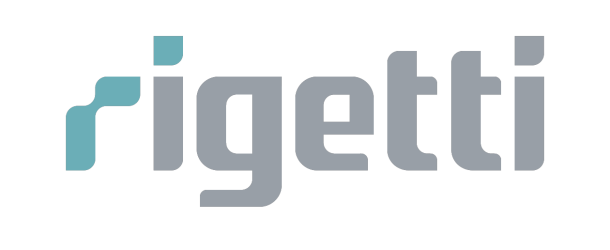
Rigetti Computing and QphoX, a Dutch start-up that has done some significant work in the area of quantum transduction and modems, have published new research demonstrating the ability to readout superconducting qubits with an optical transducer.
The partners report that this could advance work around the development and construction of scalable quantum computers as it could be a more compact, modular, and energy-efficient approach for measuring qubit performance in quantum computing systems that rely on microwave amplification.
An optical readout solution for microwave-based quantum systems, such as those derived from technology QphoX is working on, could improve on current qubit readout techniques used by superconducting quantum computers in cryogenic environments that are resource-intensive from a thermal and power usage perspective.
“The team’s initial proof of concept using QphoX’s optical transducer connected to a Rigetti superconducting transmon qubit achieved an optical readout with a fidelity exceeding 99%,” according to a Rigetti statement on the research. “This demonstration marks an important milestone in Rigetti and QphoX’s collaboration to evaluate the potential of applying microwave-to-optical conversion to multi-qubit readout in superconducting qubit devices.”
The statement added that the work shows, “for the first time, the results of qubit readout (determining the qubit’s state) using a fully integrated transducer that can scale alongside next generation quantum computers.”
Dr. Robert Stockill, CTO and Co-Founder at QphoX, stated “By leveraging our unique microwave to optical quantum conversion technology, we’re able to minimize the spatial and heat load constraints placed on the cryostat in which modern quantum processors are housed, allowing us to support scaling of these systems to commercially interesting numbers of qubits. Our demonstration of this technology with a Rigetti quantum integrated circuit (QuIC) device highlights the maturity and potential of our technology and marks a milestone in our partnership.”
Rigetti CEO Dr. Subodh Kulkarni added, “Exploring new approaches to qubit signal processing as we plan to scale to even larger qubit counts is a valuable undertaking and we are thrilled to be able to benefit from QphoX’s expertise in optical readout technology.”
QphoX also has worked with the likes of IQM Quantum Computers on developing more efficient interfaces from quantum computers and processors.
Dan O’Shea has covered telecommunications and related topics including semiconductors, sensors, retail systems, digital payments and quantum computing/technology for over 25 years.
- SEO Powered Content & PR Distribution. Get Amplified Today.
- PlatoData.Network Vertical Generative Ai. Empower Yourself. Access Here.
- PlatoAiStream. Web3 Intelligence. Knowledge Amplified. Access Here.
- PlatoESG. Carbon, CleanTech, Energy, Environment, Solar, Waste Management. Access Here.
- PlatoHealth. Biotech and Clinical Trials Intelligence. Access Here.
- Source: https://www.insidequantumtechnology.com/news-archive/rigetti-qphox-show-more-efficient-qubit-readout-using-optical-transducer/
- :has
- :is
- 13
- 2023
- 25
- 250
- 610
- a
- ability
- Able
- According
- achieved
- added
- advance
- Allowing
- alongside
- also
- Amplification
- an
- and
- Applying
- approach
- approaches
- ARE
- AREA
- around
- AS
- At
- BE
- benefit
- by
- CAN
- ceo
- Co-founder
- collaboration
- commercially
- compact
- computers
- computing
- concept
- connected
- constraints
- construction
- Conversion
- could
- covered
- CTO
- Current
- demonstrating
- Derived
- determining
- developing
- Development
- device
- Devices
- digital
- Digital Payments
- done
- dr
- Dutch
- efficient
- environments
- evaluate
- Even
- exceeding
- expertise
- fidelity
- First
- first time
- For
- from
- fully
- generation
- Have
- High
- highlights
- HTTPS
- image
- important
- improve
- in
- Including
- initial
- inside
- Inside Quantum Technology
- integrated
- interesting
- interfaces
- IQM
- IT
- larger
- leveraging
- likes
- load
- maturity
- max-width
- measuring
- milestone
- Modern
- modular
- more
- more efficient
- New
- next
- numbers
- Oct
- of
- on
- our
- over
- partners
- Partnership
- payments
- performance
- perspective
- plan
- plato
- Plato Data Intelligence
- PlatoData
- posted
- potential
- power
- processing
- processors
- proof
- proof of concept
- published
- Quantum
- quantum computers
- quantum computing
- quantum systems
- quantum technology
- Qubit
- qubits
- related
- rely
- report
- research
- resource-intensive
- Results
- retail
- ROBERT
- scalable
- Scale
- scaling
- Semiconductors
- sensors
- show
- Shows
- Signal
- significant
- solution
- some
- Spatial
- Start-up
- State
- stated
- Statement
- such
- superconducting
- support
- Systems
- techniques
- Technology
- telecommunications
- that
- The
- The Area
- thermal
- These
- this
- those
- thrilled
- time
- to
- Topics
- true
- unique
- us
- Usage
- used
- using
- Valuable
- we
- which
- with
- Work
- worked
- working
- years
- zephyrnet












